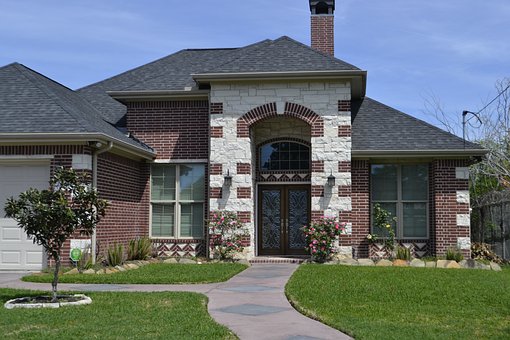

When you fall behind on your mortgage payments on your CARLISLE home, it can feel like you’re drowning in debt.
Even if you’re able to make your monthly payment, catching up on a past due balance can be an overwhelming challenge.
There are a few options that can help you to avoid foreclosure in CARLISLE and maybe even keep your house, even if you’re seriously behind in payments. Lots of properties in CARLISLE have been lost to foreclosure, but there are many ways to avoid it.
Help, I’m Behind in My Mortgage Payments in CARLISLE! 5 Things You Can Do To Help Your Situation
1. Bankruptcy:
This is usually the tool of last resort. If you’re being crushed by lots of debt, bankruptcy can be a good way to negotiate with lots of lenders at once. It’s a lot of work, and it won’t help you avoid your mortgage. Different lenders will treat your circumstances in unique ways. You’d benefit from serious professional help – the best you can afford.
2. Reaffirm:
This can be a good card to play, but it may come with some unseen penalties. Basically, reaffirming the loan is an additional commitment to pay. In some states where it’s allowed, an affirmation can create additional liabilities if your property is auctioned.
3. Making Home Affordable (MFA):
If your mortgage qualifies, you might be able to participate in MHA. Any loans backed by Fannie Mae or Freddie Mac must be considered for MHA, and other lenders choose to participate in MFA.
With MFA, your payments and/or interest rates might be lowered – even the principal balance (if your home is worth less than you owe). If you’re unemployed, you might be able to get your payments temporarily suspended or reduced.
MFA is a government program, so be prepared to deal with lots of paperwork. It ain’t free money – you gotta work for it.

4. Negotiate with your bank:
Lots of lenders routinely offer some level of assistance. You have to work hard at it, but you might be able to get your interest rate reduced or a temporary reduction in your payment.
Most of the time, lenders will want to steer you to refinance your loan – but by the time you’re a few payments behind, you probably don’t qualify for a reduction in interest rate.
You have to work really hard to negotiate with a bank. Usually, it takes lots of calls and the patience of a saint to get through the bureaucracy. Never, ever act rude. Ask for help from everyone you speak with, but don’t sound desperate. Explain your situation, offer supporting documents, and reassure the bank that you want to live in your home for the long term.
If you’re in need of a temporary fix and want to stay in your home, most banks can be forgiving. Sometimes they’ll be willing to add a few months of payments back onto the primary balance of your loan. It’s all dollars and cents to them, so remind them that you need their help to give them a lot more money in the long run. If they have to sell your house at a foreclosure, they’ll take a huge loss.
That sounds obvious, but for some reason, bankers seem to forget it when saying no to someone in need of help.
5. Borrow money from a private investor:
Help, I’m behind on my payments, what can I do?
If you’re behind on your payments and need to sell fast, we can help.
In certain circumstances, we may even be able to help you stay in your home.
We work with homeowners in CARLISLE to find solutions to foreclosure problems.
We’ll let you know how we can help.


Help! I’m behind on my mortgage payments.
What happens if you can’t pay your mortgage?
If you reach a point where you’re unable to pay your mortgage, there are several potential options to consider — before facing foreclosure — that could help lessen penalties or keep you in your home.
Housing counseling
You can reach out to a housing counselor approved by the U.S. Department of Housing and Urban Development (HUD) if you’re struggling to pay your mortgage and are looking for foreclosure prevention options.
Whatever your course of action, the housing counselor will explain which documents you’ll need to provide to your mortgage servicer to start the process, and they may even be able to contact the mortgage company on your behalf to help you understand your options. If you’re facing the threat of foreclosure, housing counseling is a great place to start.
Mortgage forbearance
A mortgage forbearance is an option that allows you to temporarily pause or lower your mortgage payments for a set time period if you’re experiencing financial hardship.
The terms of these agreements vary based on factors including the type of loan you have, your loan servicer and the investor requirements on your loan. The one consistency is that after your forbearance period ends, you must repay all missed payments with interest either in a lump sum or over time as part of your regular mortgage payments.
Mortgage modification
A mortgage modification adjusts the original terms of your loan to help make your mortgage payments more affordable. The adjustments can take several different forms, including:
- Adding your past-due balance to your outstanding loan amount and recalculating your repayment term.
- Extending your repayment term, for example, going from 25 to 30 years.
- Lowering your mortgage interest rate.
- Reducing your outstanding principal balance.
Also note that a mortgage modification is not the same as a mortgage refinance, since you’re keeping your original mortgage, just with new terms. Be sure to research what type of program might be best for you and ensure you are only working with legitimate organizations.



Home sale
The cost of selling your home can be expensive if you are already experiencing financial hardship, but is certainly something to consider if you find you can no longer afford your home.
Expenses can include:
- Closing costs
- Home inspection
- Home staging
- Moving costs
- Real estate agent commissions
- Repairs
- Utilities
- Taxes
Before opting to sell your home, make sure you have the necessary funds and an extra cushion for any surprise expenses that could arise.
Short sale
A short sale allows a homeowner who owes more on their house than it is worth to sell their home for less than they owe. The goal is to pay off as much of the balance as possible to reimburse the mortgage lender. In some instances, the lender may even forgive the leftover balance from a short sale.
If you believe this could be the best option for you given your situation, begin by reaching out to your mortgage lender or servicer to determine your eligibility for a short sale.
Deed-in-lieu of foreclosure
A deed-in-lieu of foreclosure, also called a mortgage release, is where you voluntarily transfer the ownership of your home to your lender, to get rid of your mortgage balance without having to repay.
Once you have decided that this option might be best for you, reach out to your lender to determine your eligibility. If they agree that this may be the best option for you, then the process can be completed in as little as 90 days, according to Fannie Mae.

Foreclosure
A foreclosure is the final measure that can be taken when you can’t pay your mortgage for a prolonged period of time. This process involves your lender taking ownership of your home through repossession.
When you take out a mortgage to buy a home, the home itself is what is used as collateral for the loan. If you fail to make payments, your lender repossesses the home. Your credit score will take a serious hit in the case of a foreclosure — up to a 160-point drop, according to FICO — and sticks with you for up to seven years. The good news is there are other options to consider before reaching this point, as outlined above.
If you are behind on your mortgage payments, give us a call and see if we can help. Don’t wait until it is too late!
